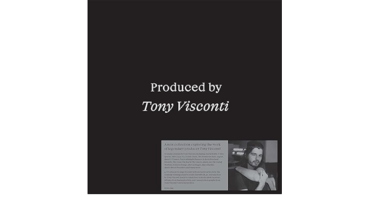Micko Westmoreland has shifted from established electronic producer The Bowling Green back in the 90’s and starring as Jack Fairy in iconic cult film Velvet Goldmine to his current spiky new wave art project Micko & The Mellotronics. With a history rich in creative output and steeped in narrative he shares stories from his early life and curveball events that dip into and share philosophical perspectives of his life and world.
With their debut album in the offing and only a sneak preview available at the moment we gain an insight into the stories behind the work. Right now a few new tracks that are being tried-out on the live circuit include Imelda, Psychedelic Shirt andSick and Tired, depicting the varied ideas and characters. Micko shares a brief insight into the new material and incarnations from actor, producer and sound programmer to the new outing Micko & The Mellotronics.

“…progressively as I worked on film soundtrack’s I began to get into a bit more of a literary engagement of what you can do with words. As I look through the titles of some of my more electronic track’s I could see that there was a song bursting to get out.”
Micko attended film school at London College of Printing in the 90s before diving into soundtracks and film scores with his brother Wash Westmoreland. This Influenced his sense of narrative, making it central to his work, “you can’t really escape narrative, whatever perspective you have on making music, if it’s an interesting idea great stuff, it’s a bit like cloud busting.”
An interesting journey unfolds from electronic to live music, it seems there is a whole new explosion of ideas in Noisy Neighbours. There is a feel of the psycho- thriller plus Suzy Kane from The I.T. Crowd plays the lead role. It’s very filmic, as Micko delves into his own life-experiences that informed it.
“I used to live in a housing co-op… you’d ask the complainant to keep a diary of events… the character in Noisy Neighbours is like an amalgam of several people, not one individual, it is taking snippets from here and there, little fragments from experience and gluing it all together.”
We also learn that he collaborated with the late Neil Innes from The Rutles, who performs keyborads and string arrangements on the AA side track, You Killed My Father, “it was a dream come true for me, I wrote it very much with Neil in mind and then he agreed to play on it…” Influenced by his relationship with Neil, Micko continues, “Whenever you’d spend time with him, you’d always come away and think about things he’d say and it would really stay with you…”
Micko himself is most well-known for his role in the cult film Velvet Goldmine, where he takes on the iconic character of Jack Fairy. “Glam rock in particular is a fictionalised music movement. Ziggy Stardust is a made-up character, an alter-ego, so really the film takes that as a starting point… to fictionalise something that is already fictionalised… something that Todd Haynes illustrated really well in the movie,” He explains how the film stepped across generations, “ultimately the thing about the characters are kind of right, if they resonate. It could have happened yesterday…”
Getting into character, “I did tons of research… I just spent the days lounging in smoking jackets, eating grapes and reading Jean Genet.” A form of method acting, “I shaved my eyebrows off, had a yellow contact lens in one eye, so I decided to wear the yellow contact throughout the whole shoot.” He praises working with Todd Haynes, the recent director of the acclaimed film Dark Waters, “Todd is such a wonderful creative person, he has a capacity for huge amounts of information, does tons and tons of research and is completely un-hierarchical, so he doesn’t have the ego that accompanies it.”
You can see how this visceral style of acting can inform his characters and bring them to life in the songs and videos. One of the new tracks, Psychedelic Shirt, is like a document of growing-up in Leeds. It reflects on the first scout club disco he attended and the shirt he bought especially for the occasion. “It was like a smorgasbord of entertainment,” after discarding the shirt while dancing, it was found deserted on the toilet floor. “It was one of those defining moments,” he picked-up the shirt and took it over to the suspected offender and in one look, “I really don’t care. You can attempt to make me feel rubbish about it, I’m not going to let you. It was about empowering myself, transcending it and turning it into something positive.” He describes it as an instinctive and defining moment.
Stories that bring the characters to life, we are immediately reminded of the transformation in the track The Finger, starring Paul Putner, “what we wanted to do really was present different cultures colliding within the same film. It starts with an estate agent / Brexiter going into a gay bar and being served by a transvestite.”
With the help of a magic drink, his body language starts to change, “that was part of the journey towards the end sequence where he kind of loses his inhibitions and lets his hair down.” “It relates to prejudice, if you see people as individuals there is no such thing.”
Micko outlines his manifesto for individualism and challenging the imagination in an everlasting search for crossing boundaries – finding out where the story will go next. “I just think it is always really interesting when people take risks. They don’t always come off, I mean Todd Haynes is an example of that, he is a huge film-maker and when it does work it is absolutely spectacular, so better to be prepared to take those risks, with it not quite coming off as down side, because when it does come off it is truly spectacular.”
As well as his experience with Todd Haynes, Micko is connected to the film world via his brother, Wash Westmoreland, “for years in California he was trying to get stuff made and I don’t think it was just luck, there were quite a few factors involved, but then Julianne Moore signed-up to perform in Still Alice.”
We talk more about the film and the power of music, Micko expands, “it is very uplifting, it’s got a very good feeling at the end of the movie.” We discuss the feeling, where, how that works, there is so much love in the film, living for the moment. “Still Alice is very revealing of the characters that are depicted in the movie and by the end of it you just get a real sense of the people who really love her for the person that she is or the person that she was, however you wish to view it – both. You know it has a universality about it, about self, about who you are and people’s interpersonal connections to you and how important those things are. I mean they are more important than anything ultimately.”

Micko is endlessly curious about human behaviour, Sick and Tired is a short vignette referencing his time living in New York. On one occasion he was giving money to a homeless person outside a wealthy housing block, “after I’d given him a couple of dollars. A guy who lived there said ‘why do you have to do this. I have to walk past this person every-day,’ and I say to him well, ‘you have to walk past it don’t you, you don’t have to be it. You don’t have to experience what this person is going through. It’s just an inconvenience for you as you walk by.’
The song unfolds, verse by verse, documenting a person bitching about the local vicar at a village fete for not paying for cups of tea and eating too many biscuits, “it looks at pettiness if you like, at one end of the scale, then moves to the more fundamental and prescient issue of homelessness.”
Micko’s career, while prolific in his own right, seems to have picked-up a whole series of dream collaborations, during his musical lifetime, he has worked with Neil Innes, Terry Edwards, members of The Clash, The Specials and Madness, producers from Luke Vibert to Mike Paradinas, as well as supported cult and iconic bands in his current incarnation from Blue Orchids, The Monochrome Set and David Devant. He found himself hanging out with Michael Stipe at Cannes film festival and having him turn up at a house party in Ladbroke Grove, at a time when he was collaborating with artists from Jean Jacques Bernell of The Stranglers to singer Jo Reynolds from Les Rhythmes Digitales as The Bowling Green.
He shares with us his secret formula for making it all happen, “collaborating with people is a wonderful thing, because when you meet people that have done really interesting, inspiring things, you can’t help inspire yourself.” Recently having worked with Tony Visconti, Micko describes the process, “he was very inclusive, very interested, very calm, a very gentle person to be around – so when people are quite easy with themselves it makes you relax a lot more.”
He talks about inspiring artists from a snippet in conversation, “There was a thing when Bowie died, Bowie in his own words. One of the sign-off quotes was, ‘I got friends with Iggy Pop and Lou Reed and I thought they were amazing and I wanted to inflate them to a really grand stature and then when I thought they were as big as I wished them to be I tried to join them. That is a really good visual image of, ‘your fantastic and I’m letting you know and when you really perform in that fantastic way, I’m gonna get up there with you.’ It’s a really positive way of thinking and it just makes it fun.”
Micko & The Mellotronics new track, Noisy Neighbours is out via Landline Records, April 17, physical release to follow June 27.





